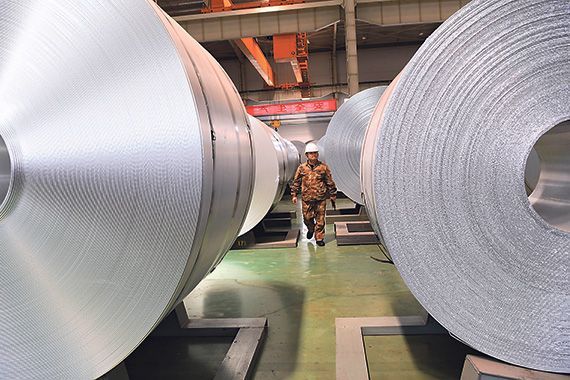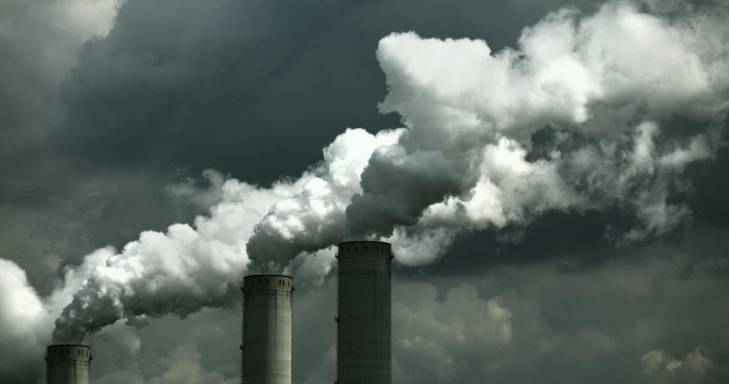The ink has not had time to dry on the documents signed in Mexico that already voices from Quebec are demanding that the free trade agreement between Canada, the United States and Mexico (ACEUM) not be ratified .
We are concerned about the fate of aluminum in this new version.
At the end of the day Tuesday, Deputy Prime Minister Chrystia Freeland said at a press conference that a minimum of 70% of North American aluminum should now be used in the production of automobiles. A quota presented as a gain by the minister since it did not exist so far, she said.
In addition, Ms. Freeland was also pleased to announce the end of the US import tariffs for Canadian aluminum.
“Today, Canada is the only major producer of aluminum in the world that has access to the American market at no cost,” said the Minister in French, who spoke directly to Quebecers during her press conference.
Earlier in the day, the Alma Aluminum Workers’ Union said they believed that last-minute changes, obtained by the Mexicans, were causing the protection that would have been granted to North American aluminum to be lifted, Mexico using aluminum from China and elsewhere to manufacture its auto parts.
“We were not protected. We think we were sacrificed to protect steel,” protested union president Sylvain Maltais, on the other end of the phone.
The lingering problem, say industry members, is that the definition of what constitutes North American aluminum is too vague.
The agreement “disappoints” the Canadian aluminum industry. “The agreement allows Mexico to continue importing metal as it pleases from China and other regions of the world,” said the Aluminum Association of Canada in a statement. The “competitiveness” of the Canadian product will be affected.
“We are going to ask the government and the political parties (…) that the agreement will not be ratified if there is no protection for the aluminum market”, declared, for his part, Mr. Maltais .
In Ottawa, his complaints were taken up inside the House and in the corridors by elected Quebecers, the Bloc members speaking the loudest.
“I advise the government (…) if someone thinks that the Bloc Quebecois will vote in favor of a treaty that sacrifices Quebec aluminum, it will be no”.
On leaving the House, he attacked the minister who spearheaded the negotiation of the CUSMA.
“Ms. (Chrystia) Freeland version 1 sacrifices supply management. Ms. Freeland version 2 sacrifices aluminum. We would have to make sure that there is no Ms. Freeland version 3. What will remain of the Quebec economy? “, He launched.
It will be two without three
After support for the Speech from the Throne and the minority government’s first piece of legislation – a tax cut -, the Bloc leader found his first bone of contention with Justin Trudeau.
“The red line is there,” said Blanchet. He urged the other two opposition parties to also refuse to ratify the agreement.
New Democrats and Conservatives have not followed it until then.
“It’s been two straight losses for Quebec, supply management and aluminum,” said Alexandre Boulerice. But the New Democratic Party (NDP) is waiting to study the new version of the agreement in more detail before deciding whether to support its ratification by the Canadian Parliament.
“What we hear, at the outset, is that there would be concrete progress for workers and the environment,” said New Democrat Daniel Blaikie.
“We are creating uncertainty in the aluminum market at home,” complained curator Richard Martel, who also wants to see the agreement before advancing further.
Sent to respond to criticism, the Quebec lieutenant of the Trudeau government assured that there is “a net gain for Quebec”.
“If we look at the agreement signed today and the NAFTA which is in force until now, there is a net gain,” insisted Pablo Rodriguez, refusing any other comparison.
Some believe that steel producers have fared better than aluminum producers. Response from the Quebec lieutenant: his government defends “all sectors”.
Second signing ceremony
The new ACEUM was signed Tuesday afternoon at a ceremony in Mexico City.
Canadian Deputy Prime Minister Chrystia Freeland has signed her signature alongside that of the US Trade Representative, Robert Lighthizer, and his Mexican counterpart Jesus Seade.
The agreement was originally signed by the three countries last year. The Mexicans quickly ratified it, but in the United States, the Democrats, the majority in the House of Representatives, demanded protections for workers. And in Canada, we didn’t want to ratify before the Republicans and Democrats got along.
The Canadian government is touting this new version, but Canadian parliamentarians will not have time to ratify it before the end-of-year holiday, which begins on Friday and continues until January 27.



